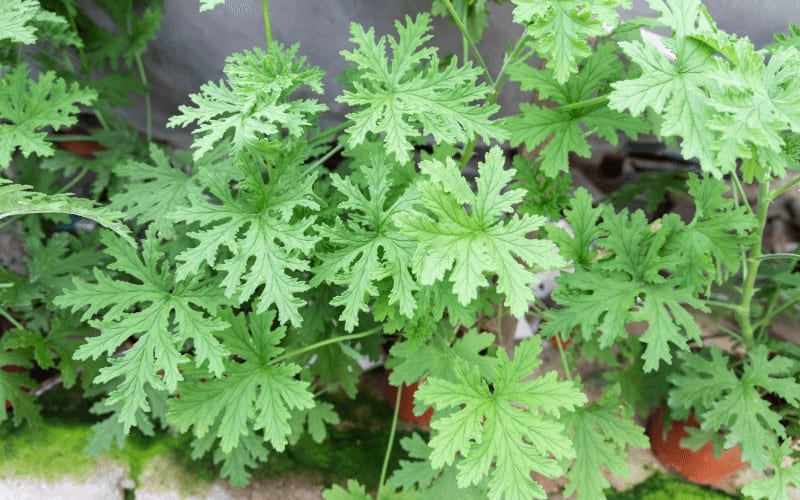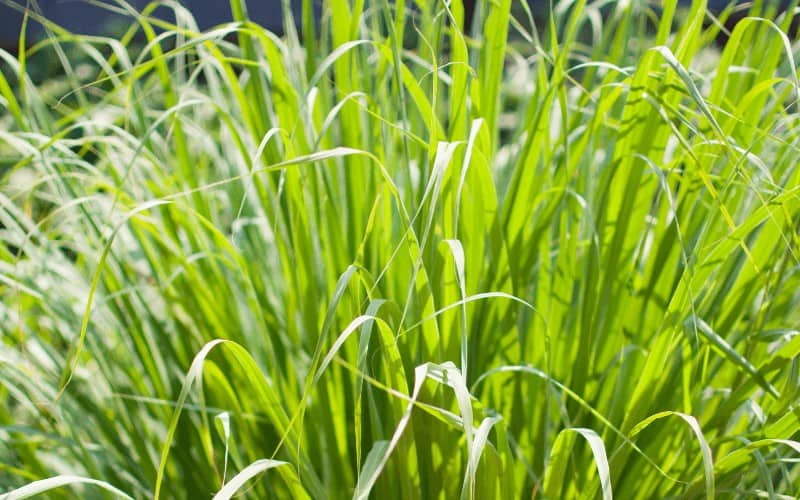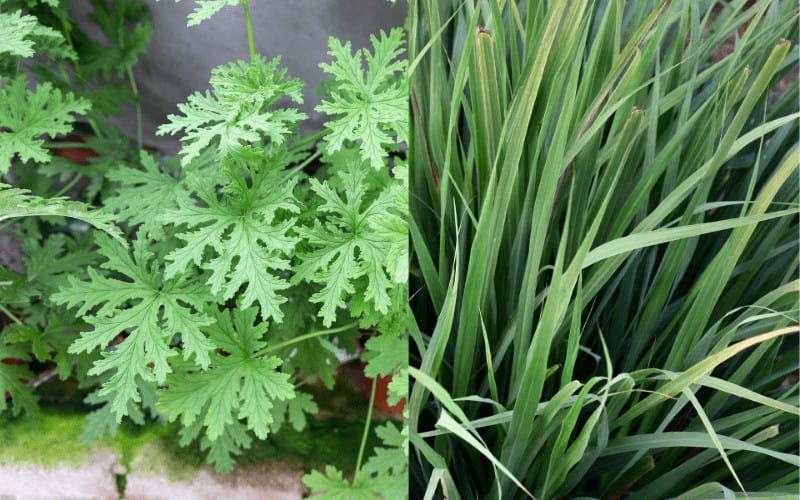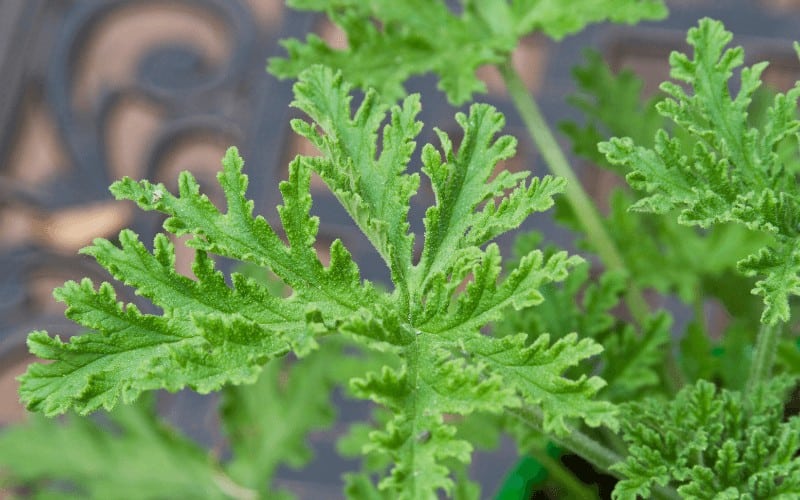Most times, citronella grass has been referred to as lemongrass. It is almost impossible to tell the differences between them without prior knowledge because both lemongrass and citronella grass are closely related.
Both kinds of grass look and smell very similar, but a closer view of each of them shows that lemongrass is all green, while citronella grass has reddish colored pseudostems at the base.
In this article, we are going to be looking at each of them critically. This will help us know the major differences and similarities between citronella plant vs lemongrass, including the characteristics and uses.
Without any further ado, let’s get down to the nitty-gritty.
Read Also: How to Keep Bermuda Grass Out of Flower Bed
Table of Contents
Citronella Plant
Citronella plant has much importance, but more often than not, they have been cultivated solely to repel mosquitoes.
You may be wondering if they do really repel mosquitoes. Yes, they do! The challenge most gardeners face is that what is sold to them as citronella plants are not the real ones – they are scented geraniums or other plants that scents like citronella plants. They do not have the oil that repeals mosquitos.
Apart from being cultivated as mosquitoes repellant, there is more to this plant. It is also grown as a popular food spice in Indonesia.
The following are some of the herbal importance:
- Fever reducer
- Relieving migraines, tension, and depression
- Muscle relaxer or antispasmodic
- Anti-bacterial, anti-microbial, anti-inflammatory, and anti-fungal
- Oil from the plant is used in many cleaning products
When growing citronella, it is essential to plant them in areas where there is bright but filtered sunlight. If you are growing the citronella plant indoors, you should ensure that the sun rays can reach the plant every day. You’d want to expose the plant to at least 6 - 8 hours of tolerable sunlight.
It will manage to do well in any soil type, but moist-loamy soil has been proven to be the best soil for it to thrive.
Citronella grass is demanding; it has high water needs. So you will need to water it every day, especially during the initial stage of cultivation.
Lemongrass
Lemongrass is a herb shrub with a lemony scent. The plant is grown more in tropical climates, and mostly in Southeast Asia.
Cultivation is pretty easy, and anyone can grow it.
Buy a few stalks from the local store and soak the roots in water. Allow roots to develop. This can take between 2 to 4 weeks -- and after the roots have grown between ½ inch to 1 inch long, plant it in your best-preferred area.
Whether in your garden or a pot, lemongrass will do well as long as it is provided with rich soil, sufficient sun, and warm temperatures.
It is used as a common ingredient in most Indonesian, Sri Lankan, and Indian dishes. This grass is not only limited to ingredients and spices, but it is also used for herbal teas – thanks to the flavor of lemon with hints of ginger.
Because of its scent, it is used as mosquito and other bugs repellants. This is why it is recommended to be planted around your patio area.
Not forgetting to mention its uses as a fragrance for cosmetic products, and including soaps, and deodorants.
Read Also: How to Prevent Grass From Growing Fast
Can You Plant Lemongrass And Citronella Together?
The good thing about these two plants is that they are similar in many ways. They have the same sun, water, and soil requirements. This means that you can grow them together.
The challenge is that if they are too clustered and mixed up together, it may be hard to differentiate between them.
The best practice will be better to plant them in separate rolls or pots for better identification so that if you're picking lemongrass for tea time, you won't mistake Citronella for it.
Lemongrass Vs Citronella Grass | What Fights Mosquitoes Better?
If you are not planting a lemongrass or citronella grass for the herbal benefit, you are definitely cultivating them for the repellant benefits. The bone of contention should be about, which is the best mosquito repellant.
There are over 10 different plants that serve as mosquito and insect repellants. Of all these various plants, citronella grass is the most commonly known solution. But sometimes, the normal is not always the best.
Haven tried out most natural mosquito repellent products, the ones made with lemongrass oil as the basic ingredient has proven to be more efficient.
If we have the option to choose or recommend between both plants for bug repellant purposes, we will not hesitate to recommend the lemongrass.
According to the EPA, lemongrass is natural, non-toxic, and has no known long-term effects.
Citronella Plant Vs Lemongrass | Similarities and Difference
- Both plants have spear type leaves and can grow to heights of 5 - 6 feet
- Citronella grass has wide blades, is deep green, and features a very strong smell and taste.
- Lemongrass is narrow, light green in color, with a pleasing lemon smell that creates a light-weight, sweet-tasting.
- Lemongrass is edible; this is why it can be used as herbal tea and also used as major ingredients in seasoning and spices. On the other hand, citronella grass is used in producing cleaning products, deodorants, perfumes, mosquito repellants, and soaps. Although it can be consumed, excessive consumption of this grass can cause health issues such as increased heart rate, lung damage, and skin allergies.
Further Reading
- How to Remove Grass in Vegetable Garden
- How to Grow Citronella Grass From Cutting
- Different Types of Succulent Plants
Conclusion
Once you can identify the difference between citronella and lemongrass, you will be able to decide for yourself what to cultivate based on your need.
Just like we have established at the beginning of this post, the major difference while trying to spot them is in the coloration.
And just to recap, when they are green at the base, it is lemongrass. On the other hand, for citronella, they have a reddish base. This is the best way to differentiate between them.
It is important to note that mosquitos generally hate the smell of lemon. Both types of grass offer such, so you’d want to use that knowledge wisely.








